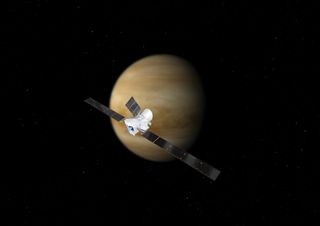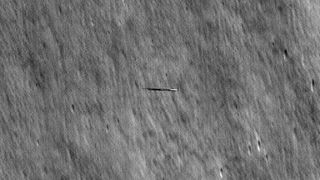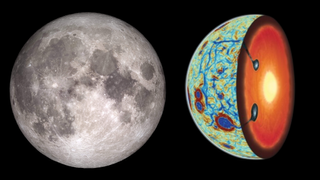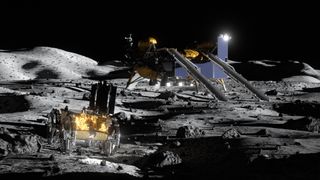Solar System
Explore Solar System
Latest about Solar System

Iconic British meteorite 'Winchcombe' found to have a smashing past
By Keith Cooper published
A detailed analysis of the Winchcombe meteorite has found evidence that its parent asteroid was altered by water before being smashed apart multiple times.

Venus is leaking carbon and oxygen, a fleeting visit by BepiColombo reveals
By Sharmila Kuthunur published
BepiColombo spotted an outpour of carbon and oxygen atoms in Venus' fragile magnetic environment

This little robot can hop in zero-gravity to explore asteroids
By Samantha Mathewson published
A three-legged robot named SpaceHopper could help combat challenges of exploring low-gravity environments, such as asteroids or moons.

SpaceX's giant Starship will be 500 feet tall for Mars missions, Elon Musk says (video)
By Elizabeth Howell published
Just weeks after Starship first reached orbital speed during a spaceflight in March, SpaceX founder Elon Musk outlined what the company wants to do with future spacecraft for Mars missions.

A NASA spacecraft spotted something weird orbiting the moon. It was just a lunar neighbor (photos)
By Samantha Mathewson published
NASA's Lunar Reconnaissance Orbiter (LRO) snapped a perfectly timed photo as it crossed paths with another spacecraft orbiting the moon.

Car-size asteroid gives Earth a super-close shave with flyby closer than some satellites
By Josh Dinner published
A newly discovered space rock will harmlessly pass by Earth today. Still, at less than a tenth the distance to the moon, asteroid 2024 GJ2 will miss the planet by the skin of its teeth.

Trains, planes and a total solar eclipse! Watching the moon block the sun was a transportation adventure (exclusive)
By Elizabeth Howell published
My family has been in transportation for generations, in planes and trains. I finally got my two ancestral lines to meet, eclipse-style, at a Canadian rail station near an airport.

What happened when the moon 'turned itself inside out' billions of years ago?
By Robert Lea published
The moon underwent a reversal around 4.2 billion years ago, flipping itself "inside out" after a giant impact to create the picture of the faithful lunar companion that we see today.

Thousands of hidden meteorites could be lost forever as they sink in Antarctic ice, taking their cosmic secrets with them
By Harry Baker published
A new study warns that 5,000 meteorites could be sinking beneath Antarctica's icy surface every year as a result of climate change, depriving scientists of vital information about our solar system.
Get the Space.com Newsletter
Breaking space news, the latest updates on rocket launches, skywatching events and more!

